Aug 01, 2025
Author:Sam Wonder
Cats are free-spirited, adventurous, and they normally run the home with their elusive charisma. However, certain people who have cats can ask themselves the following: can I keep my cat in a cage overnight?
The reason can be either a medical problem or behavioral training or even the safety of the cat, when someone brings up the prospect of leaving a cat alone overnight, certain opinions soar out.
This article explores the reasons some people consider putting cats in cages at night, whether it’s safe or legal, and how to do it humanely if necessary.
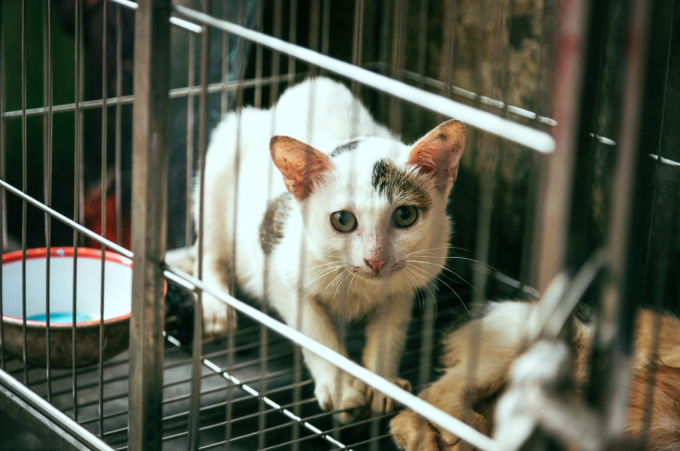
There are several scenarios where cat owners consider crating a cat at night:
● New kitten adjustment: Kittens may need a secure place to sleep as they adjust to a new home.
● Litter training: Some use crates as a temporary solution for reinforcing litter box use.
● Post-surgery or sickness: A confined space can also be prescribed by a vet.
● Safety: Cages may prevent nighttime accidents in a multi-pet household or when a cat is still a kitten.
● Destructive behavior: In case your cat becomes destructive as a result of being unattended, it might appear like crating is a way out of such a situation.
Whether such situations are justified or not is another debate, but what is important is to ensure that your cats are not harmed and they are kept safe, even if inside the cage.
The quick answer is: yes, however, with critical reservations. Caging a cat at night is not necessarily an inappropriate practice, but only if it is done properly and in a good and roomy crate. However, it is important to note that frequent caging will stress them out and cause anxiety and behavioral problems.
Cats are not dogs—they are territorial animals that value freedom. Crate training a kitten at night for training or safety is more acceptable than crating adult cats long-term. In both cases, the cage should never be used as a form of punishment.
Make sure the crate is:
● Large enough to stand up, turn around, and stretch out the limbs.
● Furnished with cushy beddings, water, and a litter box
● Taken to a warm corner in the house, where the noise is restrained
For example, you can put an automatic feeder so you can ensure that your cat remains fed at all times. This will help reduce stress for your cat.
The WOPet Heritage View automatic feeder with the camera gadget will allow you to monitor your cat and make sure that they receive food at some specific times even when you are away.
Many pet owners ask this question of whether it is legal to have a cat in cage overnight or not. This might be different depending on your location and what the case scenario is.
On the whole, it is not a crime if you crate or cage your cat, because it can be due to the advice of a doctor, you may be on the trip with your cat, or any other valid reason. These laws, however, are enforced on animal cruelty only when the cat is:
● Being locked up long enough without any respite
● Being left under unhygienic, congested, or risky conditions
● Having been denied food, water, or correct care
In countries such as the United States and most other countries, the authorities can step in given there is a clear endangerment to the welfare of a pet.
You should verify the laws in your jurisdiction by contacting your local animal welfare agency, or at the very least by searching on the internet. When in doubt, in order to avoid stress, turn to the alternatives to caging like having enclosed areas, as a precaution.
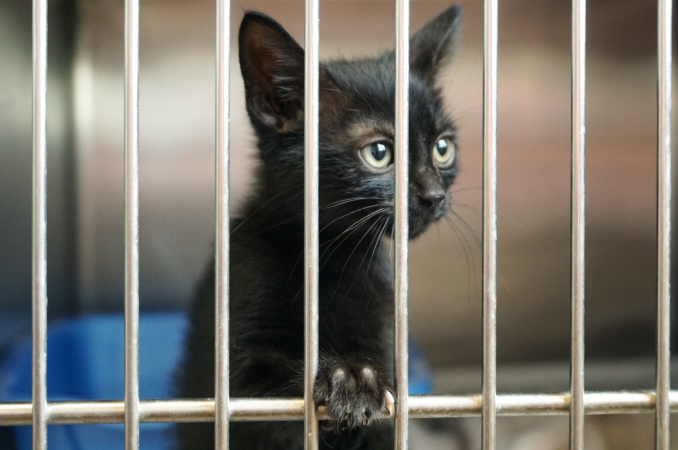
Putting cats in cages at night may be suitable during a few hours, particularly for kittens, for medical healing or behavior training. However, when you do it every night and over a period of weeks, it is time to reflect on the strategy.
Cats need space and an ability to exercise their mind. Such anxieties, depression, or aggression can be associated with long-term isolation lasting more than 8-10 hours.
Try breaking the routine with tools that offer structure. A great solution is using an automatic feeder like the WOPet Patrol automatic WiFi pet feeder to deliver meals at fixed times, reducing late-night activity that may prompt confinement.
Instead of wondering, can I put my cat in a cage at night? Consider safer and more enriching alternatives:
Dedicate a safe room with soft bedding, toys, and a litter box. Keep it quiet and dim. This works well for crate kitten at night scenarios.
Cats are crepuscular; they’re active at dawn and dusk. If your cat gets you up at 4 a.m. for food, that can lead to frustration and late-night mischief.
Timed feeders like the WOPet automatic cat feeder for wet food allow you to deliver meals early without leaving bed, helping your cat sleep through the night.
You can also check out WOPet’s blog on why you should use a timed cat feeder to know how this simple change can reduce nighttime disruptions.
Play actively with your cat before bedtime. Toys, climbing towers, or even treat-dispensing gadgets like the WOPet Titbit treat dispenser with camera can mentally and physically exhaust your feline.
Cats can be picky eaters and may reject dirty bowls. Using WOPet’s automatic feeder with disposable paper liners ensures your cat always gets clean servings without you having to wake up at night.
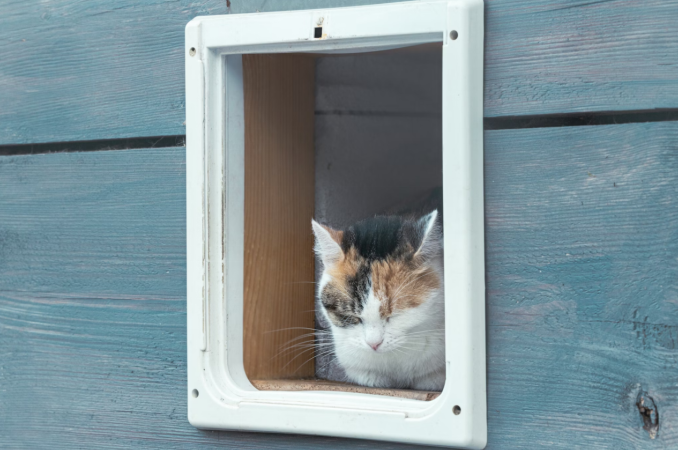
It is not the best idea in the long term, but in some situations, it is important to put a cat in a crate at night:
● Aggressiveness with other pets: Temporary separation is useful in settling down the conflict.
● Harmful surroundings: Crating can be safer in the case of renovation or pest control, which is in process.
● Transport: When a crate is being transported or when taking the pet to the vet, it is required.
When that happens, attempt to incorporate crate and calming processes, soothing lighting, white noise, and frequent feeding.
It is more prent and safer to crate kitten at night compared to adult cats since the kitten has not yet understood the boundaries. The environment makes them feel safe, and they feel okay when they get to a new house.
The crate should be large enough to fit:
● A soft blanket
● Water bowl or feeder
● Small litter tray
● A chew-safe toy
Don’t use confinement as a long-term solution. Gradually allow them to explore larger areas as they grow.
Long-term crate training may affect your cat’s behavior. Here are signs your cat may be experiencing stress due to confinement:
● Excessive meowing
● Attempting to escape the crate
● Litter box avoidance
● Hiding or aggression
● Loss of appetite
If you’ve asked yourself repeatedly, Can I keep my cat in a cage, and notice these signs, it’s likely your cat is not coping well.
To avoid habitual crating, veterinarians and animal behaviorists recommend it only when there are some medical or safety reasons. Environmental management is the way to go, creating conditions in the house to suit the cat instead of making the cat adapt to the house.
Nighttime behavior should be controlled through the use of barriers (such as pet gates), soft music, and toys, and not confinement. Reward-based methods are also applicable when you want to teach your cat to embrace solitude instead of isolation methods.
In case you were using a crate at night with a cat and wish to avoid this behavior, a slow transition is the most important.
Begin by giving them more room to move around in, and then put them into a crate and then into a small room, until you can give them more freedom. Put on calming activities, such as feeding, before they go to sleep, or turning off lights to show it is time to relax.
In the early morning, your cat can be distracted by interactive toys as well as timed feeders. Screen by screen, your cat will become more independent.
The idea is to develop some trust and safety to the point where one will not have to place a cat in a crate at night in the first place.
So, back to the main question: can I keep my cat in a cage overnight? Yes, but only occasionally, and it should only be for valid reasons like safety, health, and training. Ensure that the cage allows for proper space, comfort, and access to essentials.
If your motivation is purely behavioral, try enrichment tools or scheduled feeding systems instead. Automating mealtimes through tools like the WOPet Heritage Air smart feeder can reduce your cat’s need for late-night activity.
It is important to bear in mind that cats are sensitive. Locking a cat up at night is not an alternative but a considerate choice. Moreover, with proper care, routine, and the right tools, you can make sure that your cat sleeps non-disturbingly, and you can sleep as well.
Label:
Popular Post

What to Feed a Sick Dog With No Appetite? [2025 Guide]
May 16, 2023
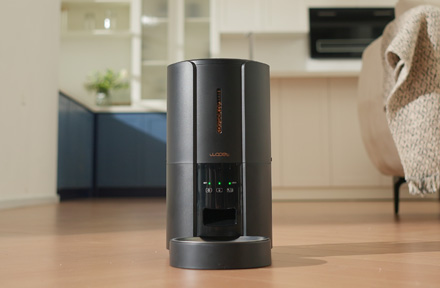
Troubleshooting Common Issues with Automatic Pet Feeders: Tips & Tricks for Pet Owners
Oct 26, 2023
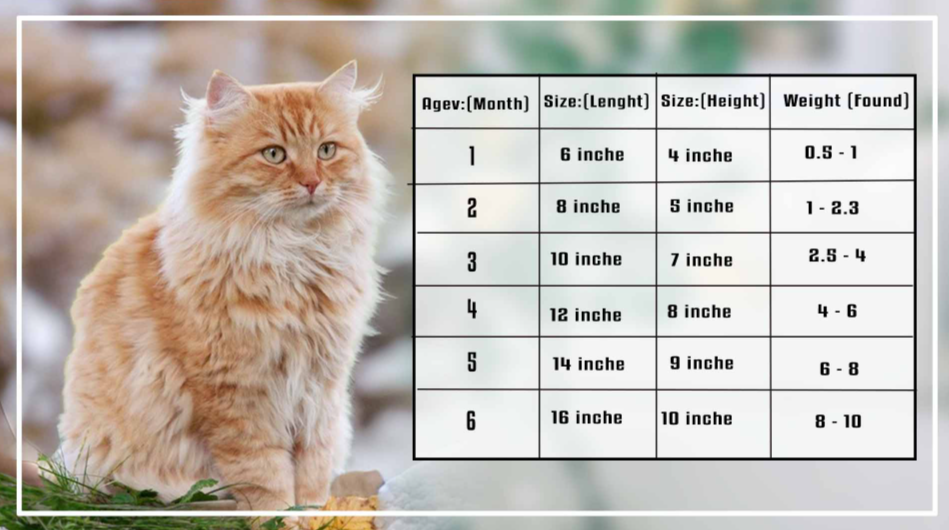
What is a standard Cat Weight chart by age Kg?
Mar 19, 2025

Why Does My Cat Cough After Drinking Water? 8 Potential Reasons
Mar 13, 2023
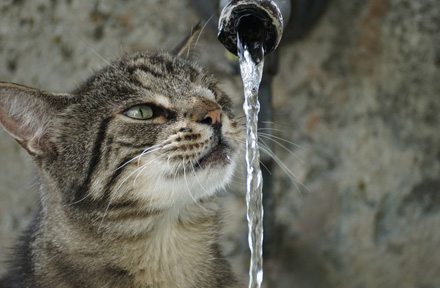
Why is My Cat Throwing up Water? Top 5 Causes Here
Feb 08, 2023
$109.99
$129.99
Copyright © 2025 WOPET. All Rights Reserved.